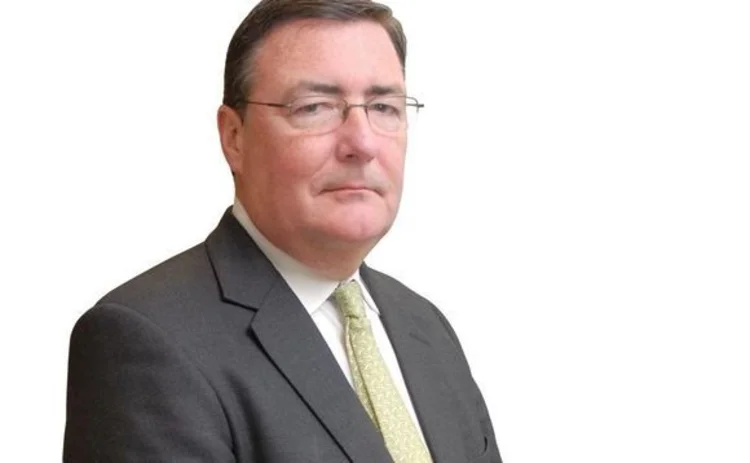
LCH.Clearnet CEO calls rival 'reckless' as Fannie, Freddie clearing battle heats up
Politicians love the idea of central clearing, but with competition for this new business increasing, so are concerns some venues might not be robust enough.

Politicians love the idea of central clearing, but with competition for this new business increasing, so are concerns some venues might not be robust enough.
The slender margins charged by upstart interest rate swap clearer International Derivatives Clearinghouse (IDCH) are "bordering on reckless", says Roger Liddell, chief executive of its main rival, LCH.Clearnet. IDCH denies the claim - but it is increasing the margin it requires from clearing members in an attempt to win over big derivatives dealers, who are also sceptical the firm's existing standards, derived from the futures market, are high enough to absorb the risk associated with over-the-counter derivatives.
The two firms are competing for the huge portfolios of Fannie Mae and Freddie Mac, which are being pushed by their regulator to transfer the bulk of their swaps to a central counterparty (CCP) by the end of this year. But Liddell's comments - made in an interview with Risk - are more than the usual competitive rough-and-tumble, he insists.
"The biggest single concern I've got is that clearing becomes adopted - which is great in general - but is adopted along the lines used in the futures market. That's nowhere near adequate to survive the stresses and the default of a large clearing member. Quite apart from the competitive aspect, that genuinely worries me," he says.
The robustness of CCPs has been relegated to a side issue in the rush to tackle the opacity and counterparty risk that paralysed the derivatives market during the crisis. Politicians and regulators have argued the stability of the whole financial system would be enhanced if dealers had used CCPs as a counterparty for the bulk of their trades, rather than another dealer. But the argument falls apart if the CCPs are less than bullet-proof.
As far as their corporate memory is concerned, it means Lehman never happened - which I think is quite remarkable
LCH.Clearnet was the only swaps clearer operating during the crisis, and Liddell argues its standards have been proven appropriate - the firm charges margin to cover a five-day move in swaps prices, deriving an estimate of the maximum possible move from the past five years of historical data. LCH.Clearnet also applies a 100% confidence level, meaning there should be no situation in which an actual five-day move exceeds the firm's estimate. By contrast, IDCH's requirements are for margin to cover a one-day move. The firm uses a 99.7% confidence level - meaning the possibility of the estimate being exceeded is small, but not non-existent - and only looks back at 125 trading days of data.
"If you think about that, as far as its corporate memory is concerned, it means Lehman never happened, which I think is quite remarkable," says Liddell.
IDCH's chief risk officer, Michael Dundon, defends the firm's approach. "I vehemently disagree that any risk management procedure we have is reckless. If our margins are lower than theirs, that is a decision they have made based on methodology I'm not aware of. But our back-tested view of how we do things - from initial margin to variation margin and our strongly stress-tested guarantee fund - is anything but reckless," he says.
Dundon says IDCH's margin standards are a minimum - the margin levels implied by those standards would be $300 per $100,000 of notional cleared on a two-year swap contract. The firm currently requires $700 of margin per $100,000 and is increasing that to cover a three-day move at the behest of the derivatives dealers whose business it is hoping to win. "Increasing margins to cover a three-day move is additive to an already high level of protection," says a spokesman for the firm. "The decision to accommodate this request was reasonable - IDCH thus will be employing a commercially acceptable level of margin that is in excess of the level needed to neutralise risk."
A further mitigating factor is IDCH's business model. Its service promises to convert interest rate swaps into interest rate swap futures - contracts that aim to replicate the economic effect and cashflows of a swap, but wipe out the tailored features of many OTC trades. The simpler futures contracts come with less price risk and should therefore attract lower margins, Dundon argues.
His rival isn't convinced. "Absolutely not. No. It's the same risk, just represented using a different financial instrument essentially," says Dan Maguire, director and head of over-the-counter interest rate and foreign exchange derivatives, risk and operations at LCH.Clearnet.
In competitive terms, the bottom line is the cost advantage IDCH enjoys is likely to be considerable, says LCH.Clearnet's Liddell. He estimates his own firm's margins could be two or three times higher than those charged by IDCH.
How will that affect the battle for Fannie and Freddie's portfolios? "I think it's impossible for any price-sensitive customer not to consider it, but our hope would be they are now in a phase where they're getting beyond the attractiveness of posting less margin and are really assessing how they feel about the residual risk," Liddell says. One path could be for the mortgage giants to split their portfolios up, clearing the simpler, shorter-dated swaps with IDCH and the more unwieldy, riskier trades with LCH.Clearnet, he adds.
The May issue of Risk will include a feature looking in detail at risk management standards for CCPs.
For a trial to Risk magazine, please click here.
Click on the link below for another recent story on LCH.Clearnet.
Further reading
Only users who have a paid subscription or are part of a corporate subscription are able to print or copy content.
To access these options, along with all other subscription benefits, please contact info@risk.net or view our subscription options here: http://subscriptions.risk.net/subscribe
You are currently unable to print this content. Please contact info@risk.net to find out more.
You are currently unable to copy this content. Please contact info@risk.net to find out more.
Copyright Infopro Digital Limited. All rights reserved.
As outlined in our terms and conditions, https://www.infopro-digital.com/terms-and-conditions/subscriptions/ (point 2.4), printing is limited to a single copy.
If you would like to purchase additional rights please email info@risk.net
Copyright Infopro Digital Limited. All rights reserved.
You may share this content using our article tools. As outlined in our terms and conditions, https://www.infopro-digital.com/terms-and-conditions/subscriptions/ (clause 2.4), an Authorised User may only make one copy of the materials for their own personal use. You must also comply with the restrictions in clause 2.5.
If you would like to purchase additional rights please email info@risk.net
More on Markets
Market-makers seek answers about CME’s cloud move
Silence on data centre changes fuels speculation over how new matching engine will handle orders
Neural networks unleashed: joint SPX/VIX calibration has never been faster
SPX and VIX options can be jointly calibrated in real time with deep neural networks
Ardagh CDS outcome satisfies some, but presents more questions
Early restructuring trigger and asset-package delivery could signify a new era for European trades
Nomura’s new global markets strategy: less risk, more return
Japan’s top dealer is moving away from risk warehousing, chasing real money clients and going global
Smarter margin. Clearer insight. Diversify liquidity.
Content series aggregating analysis, survey findings and practitioner perspectives examining the growing role of non-cash VM collateral, the operational challenges it creates and whether tri-party infrastructure can support the next phase of change
FX options API trading takes off at quant hedge funds
Systematic players behind surge in direct execution, say dealers
Investors turn to costly ‘all weather’ hedging strategies
Geopolitical and technology risks spur demand for multi-strategy QIS tail hedges
Wild dollar swing upended FX options hedges
Banks chased vol higher as last week’s EUR/USD surge knocked out barrier trades








